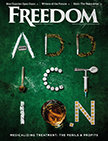Reviewing the Reviewers

In today’s world of American mass media, where conglomerate ownership and monopolistic control of media outlets is the rule rather than the exception, the manipulation of public opinion has grown to become the nature of the game.
This has infected even the common book review, where the integrity of book reviews—and reviewers—has come under scrutiny. The New York Times, Wall Street Journal and other media have written about unethical practices in the publishing world that include “buying” favorable reviews; using social influence and sophisticated techniques to inspire favorable reviews; questionable book deals with reviewers; and undisclosed personal relationships between reviewers, authors and their friends.
Yet these thinly disguised quid pro quos between book reviewers, their outlets, and the publishing world receive little attention beyond obligatory comments by editors who normally respond to critics by declaring that friendships between reviewers and their associates, along with other incestuous practices in the publishing world, constitute no “actual conflict”—a convenient fiction.
Indeed, in spite of its reputation as an untainted bastion of quality journalism, the New York Times has found itself among the most egregious and ethically challenged for allowing undisclosed conflicts between writers, publishers and reviewers, turning blind eyes to reviewers who curry favor within the publishing world. Its propensity is to call attention via its reviews to a narrow class of books, most prominently those written by middle-aged white men.
A prime example is found in the opportunistic and poorly researched Going Clear by Lawrence Wright, whose publisher, Random House/Knopf, gave him license to do a one-sided hatchet job in what amounted to yet another effort to suppress religious freedom.
The publisher’s push for favorable publicity and reviews hit pay dirt two weeks before the book’s January 2013 release to bookstores. That first round included a flattering at-home profile of the author by NYT writer-at-large Charles McGrath. The second round came four days before the book’s release from longtime reviewer Janet Maslin, who lauded Wright’s “compelling” and “evenhanded” authorship.
This was all prelude to the Times’ primary review of Going Clear on January 17, 2013—the day of the book’s release—penned by editor-at-large Michael Kinsley. It too groped blindly past obvious problems with the book, slogging instead through a feverish litany of admiration.
One can rightly wonder why a paper like the Times allowed itself to be seduced into using its reach and influence to promote both Wright and his book for the benefit of Random House corporate interests. Once you grasp that issue, it is easier to see why no subsequent Times story ever explored more honestly the book’s freewheeling use of discredited, ax-grinding sources, its Hollywood sensationalism—or its uncorrected errors.
It might have had something to do with sweetheart ties and the appearance of conflicts of interest between writers and the editors who crafted coverage on Wright and his work; between publishing interests and The New Yorker magazine that published the first flawed thesis of Going Clear; and between publisher Knopf and those who do its bidding.
Prior to becoming the editor of the New York Times Book Review, Charles McGrath was head of The New Yorker’s fiction department; he continues to contribute to the magazine. In addition, his son Ben is a staff writer for the magazine and a colleague of Wright’s. Kinsley, who also writes regularly for The New Yorker, was considered for editor-in-chief before David Remnick’s hiring.
As for Maslin, she is married to Benjamin Cheever, son of the late, well-known author John Cheever, also a writer for The New Yorker. If you trouble yourself to connect the dots, the picture emerging most closely resembles a club of the literary arts—with exclusive, restricted membership.
I asked McGrath last year to explain how he could claim impartiality with regard to a book written by an author (Wright) whose extended professional connections could benefit McGrath or his family. During his research for the Wright profile, he admittedly played the role of esteemed guest at the author’s Austin, Texas, home, and an invited guest at a performance by Wright’s own blues band in a local nightspot. No surprise, then, that his subsequent assessment of Going Clear was alight with praise.
McGrath denied he’s been influenced by the author’s hospitality or past ties, including Wright’s relationship with his son, nor a daughter’s ties to publishing interests. Yet his uncritical critique in the Times clearly served as an important foundation for the publisher’s successful efforts to brand the book as a Times “bestseller.” Nowhere did McGrath mention the book’s flaws, though some less reverential reviewers did acknowledge the author’s controversial use of dubious informants, whose own conflicts were clouded over in Wright’s version of Going Clear.
Why is a mere book review important to anyone aside from those in on the big money? It is like the lost nail in the horseshoe of the rider who warned of danger. For the want of this nail—the thoroughness and integrity of a free press—the democracy it supports is imperiled.





























